RN- NCLEX QUESTIONS AND ANSWERS IMMUNITY 2022
Document Content and Description Below
RN- NCLEX QUESTIONS AND ANSWERS IMMUNITY 2022 Which of the following clients are at an increased risk of developing Kaposi's sarcoma skin lesions? Select all that apply. a) Client status post a li... ver transplant b) Client with acquired immunodeficiency syndrome (AIDS) c) Client with type 1 diabetes mellitus d) Female client of European ancestry e) Male client of Mediterranean/Jewish ancestry - ANS-b) • Client with acquired immunodeficiency syndrome (AIDS) a) • Client status post a liver transplant e) • Male client of Mediterranean/Jewish ancestry Explanation: Clients with a compromised immune system (such as transplant clients or those with AIDS) are at an increased risk of developing Kaposi's sarcoma. Kaposi's sarcoma is also more prevalent among males of Mediterranean or Jewish ancestry, although in a less severe form. Clients with type 1 diabetes mellitus or females of European ancestry are not at an increased risk. indirect Coombs' test - ANS-To detect maternal antibodies against fetal Rh-positive factor An 8-year-old child has been admitted to the oncology unit with a suspected diagnosis of acute lymphoblastic leukemia. The nurse is obtaining a health history from the parents. During the interview, the parents ask the nurse if any of the factors discussed would make their child more at risk for this type of leukemia. What information about potential risk factors is correct for the nurse to share with the parents? a) The diagnosis of Down's syndrome at birth b) A diet that includes a large proportion of dairy products c) A weight that is above the limit for the child's age d) The X-rays that the child had at age 6 for a broken leg - ANS-a) The diagnosis of Down's syndrome at birth Explanation: Children with Down's syndrome and other genetic conditions have an increased risk of developing acute lymphoblastic leukemia. Prenatal exposure to X-rays is actually a higher concern than postnatal exposure with respect to increasing the risk of developing ALL. The exception would be postnatal exposure to high doses of therapeutic radiation used as a treatment modality, which was not indicated here. Diet would have little impact on risk factors at this stage in the child's life. When explaining the long-term toxic effects of cancer treatments on the immune system, what should the nurse tell the client? a) Long-term immunologic effects have been studied only in clients with breast and lung cancer. b) Clients with persistent immunologic abnormalities after treatment are at a much greater risk for infection than clients with a history of splenectomy. c) The use of radiation and combination chemotherapy can result in more frequent and more severe immune system impairment. d) The helper T cells recover more rapidly than the suppressor T cells, which results in positive helper cell balance that can last 5 years. - ANS-c) The use of radiation and combination chemotherapy can result in more frequent and more severe immune system impairment. Explanation: Studies of long-term immunologic effects in clients treated for leukemia, Hodgkin's disease, and breast cancer reveal that combination treatments of chemotherapy and radiation can cause overall bone marrow suppression, decreased leukocyte counts, and profound immunosuppression. Persistent and severe immunologic impairment may follow radiation and chemotherapy (especially multiagent therapy). There is no evidence of greater risk of infection in clients with persistent immunologic abnormalities. Suppressor T cells recover more rapidly than the helper T cells. A child with Down syndrome has an upper respiratory infection (URI). Which of the following is the nurse's best action? Select all that apply. a) Restricting visitation of sick siblings b) Providing fluids that the child likes c) Administering oxygen d) Consulting a speech therapist e) Ensuring that child is as active as possible - ANS-• Providing fluids that the child likes • Restricting visitation of sick siblings • Ensuring that child is as active as possible Explanation: A child with Down syndrome has deficits in the immune system and increased mucus viscosity, which contribute to URI. Providing fluids the child likes will increase the chance the child will drink the fluid and help with hydration. Sick siblings should not visit, as the child has deficits in the immune system. Increasing activity as much as possible will help the URI to resolve. Speech therapy and oxygen are not routinely needed for a child with Down syndrome who has URI. When preparing a teaching plan for a client who is to receive a rubella vaccine during the postpartum period, the nurse should include which information? a) The vaccine prevents a future fetus from developing congenital anomalies. b) The client should avoid contact with children diagnosed with rubella. c) The injection will provide immunity against the chickenpox. d) Pregnancy should be avoided for 4 weeks after the immunization. - ANS-d) Pregnancy should be avoided for 4 weeks after the immunization. After administration of rubella vaccine, the client should be instructed to avoid pregnancy for at least 4 weeks to prevent the possibility of the vaccine's teratogenic effects to the fetus. The vaccine does not protect a future fetus from infection. Rather it protects the woman from developing the infection if exposed during pregnancy and subsequently causing harm to the fetus. The vaccine will provide immunity to rubella, also known as German measles. The injection immunizes the client against the 3-day or German measles, not chickenpox. The nurse is caring for a client being discharged following kidney transplantation. The client is ordered mofetil to prevent organ rejection. Which nursing instruction is essential regarding medication use? a) Administer medication following breakfast daily. b) Sprinkle the contents of the capsule on food. c) Contact the health care provider at first signs of an infection. d) Administer the medication with an antacid to prevent stomach upset. - ANS-c) Contact the health care provider at first signs of an infection. Mofetil is an organ rejection medication that diminishes the body's ability to identify and eliminate pathogens (immunosuppressant). Identifying symptoms of infection at an early state is helpful in treating the infection. This medication is administered on an empty stomach. Typically, capsules would not be opened dispensing medication at one time. Antacids may decrease the absorption of the medication A healthy 2-month-old infant is being seen in the local clinic for a well-child checkup and initial immunizations. When analyzing the pediatric record, which immunizations would the nurse anticipate administering at this appointment? Select all that apply. a) IPV (inactivated polio vaccine) b) Hib (Haemophilus influenzae vaccine) c) Varicella (chickenpox) vaccine d) PCV (pneumococcal vaccine) e) DTaP (diphtheria, tetanus, and acellular pertussis) f) MMR (measles, mumps, and rubella) - ANS-a) IPV (inactivated polio vaccine) b) Hib (Haemophilus influenzae vaccine) d) PCV (pneumococcal vaccine) e) DTaP (diphtheria, tetanus, and acellular pertussis) At age 2 months, the American Academy of Pediatrics and Public Health Agency in Canada recommends the administration of DTaP, IPV, (Hep B in the United States), Hib, Rotavirus vaccine, and PCV. The MMR and varicella immunizations would be administered at 12 to 15 months. The nurse is caring for a client newly diagnosed with human immunodeficiency virus (HIV) obtained from unprotected sex. The nurse is in the room when the client is explaining the disease to another person. Which statement by the client would the nurse clarify? Select all that apply. a) "I will have this for the rest of my life." b) "The disease can also be spread by body fluids." c) "I am afraid that I will give this disease to my nephew." d) "I could pass this on to a baby before I give birth." e) "My sexual practices will have to change." f) "Medications can cure the disease." - ANS-c) "I am afraid that I will give this disease to my nephew." f) "Medications can cure the disease." Human immunodeficiency virus (HIV) is a sexually transmitted infection. Casual contact such as that with a family member will not spread the disease.Unfortunately, at this time, there is no cure for the disease. The client is correct in stating that sexual practices will have to change to prevent further spread of the disease, the disease can be spread by body fluids and can also be passed on to a fetus. An infant is to receive the diphtheria, tetanus, and acellular pertussis (DTaP) and inactivated polio vaccine (IPV) immunizations. The child is recovering from a cold and is afebrile. The child's sibling has cancer and is receiving chemotherapy. Which action is most appropriate? CONTINUES... [Show More]
Last updated: 1 year ago
Preview 1 out of 21 pages
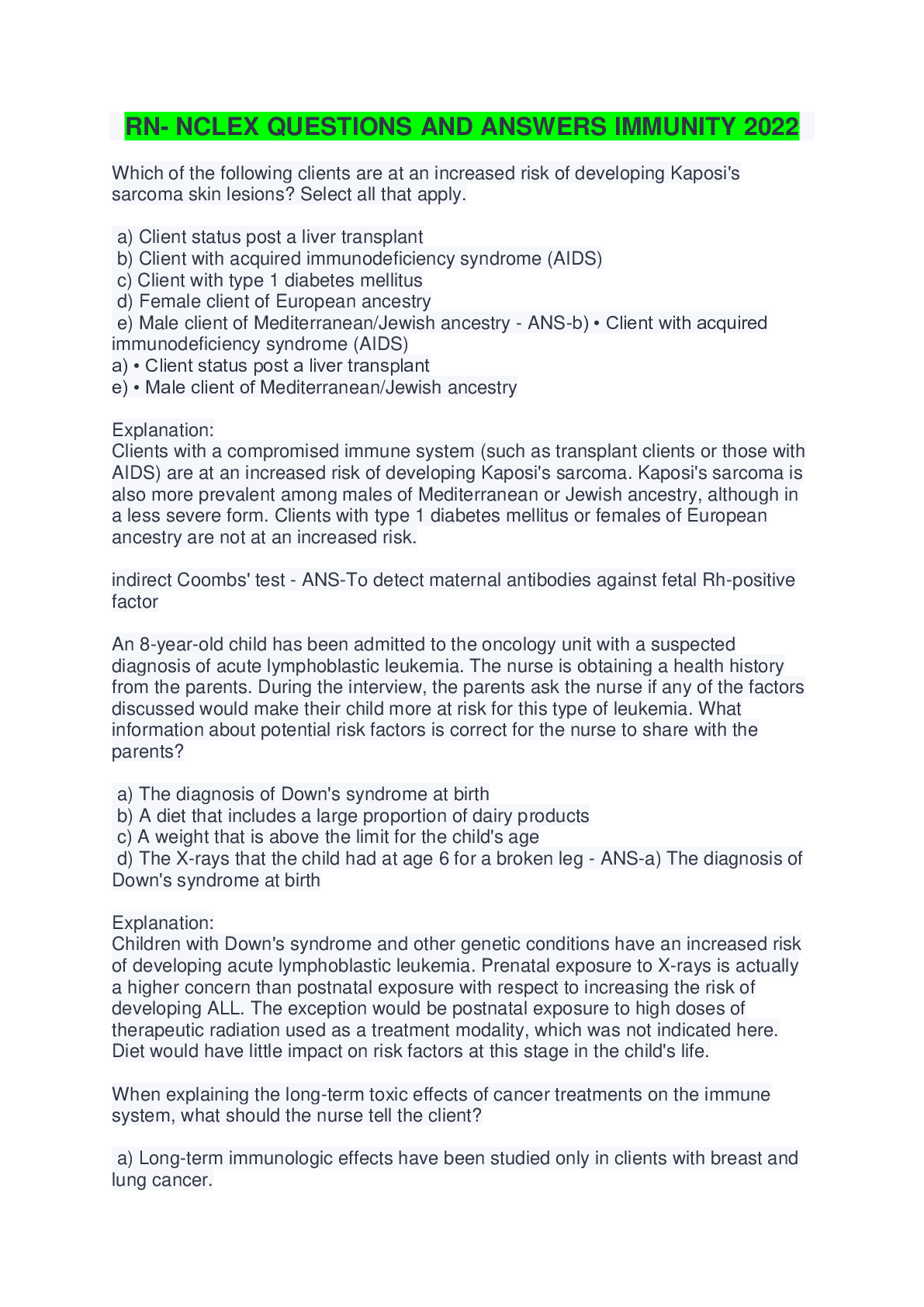
Reviews( 0 )
Document information
Connected school, study & course
About the document
Uploaded On
Oct 07, 2022
Number of pages
21
Written in
Additional information
This document has been written for:
Uploaded
Oct 07, 2022
Downloads
0
Views
32

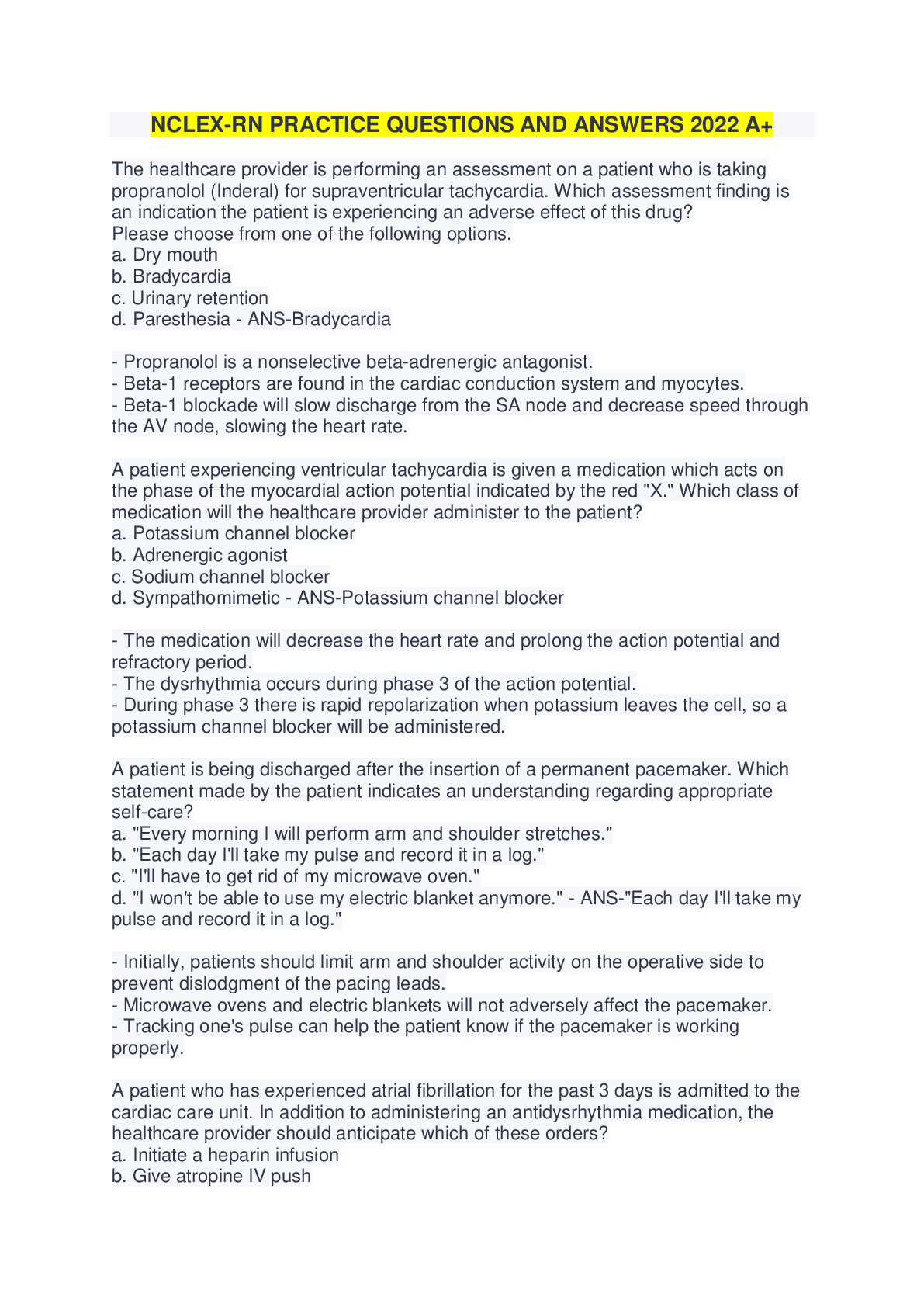
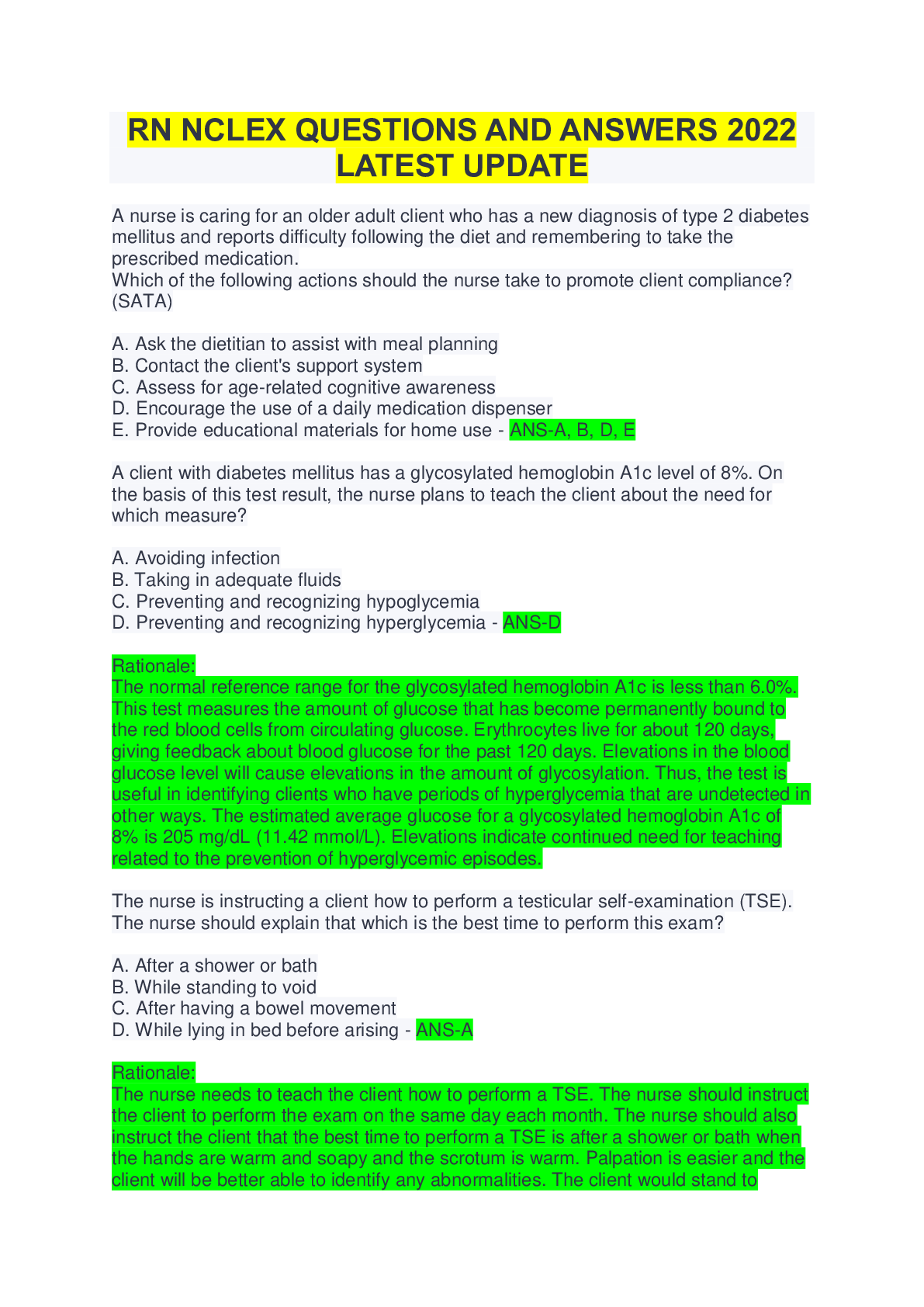
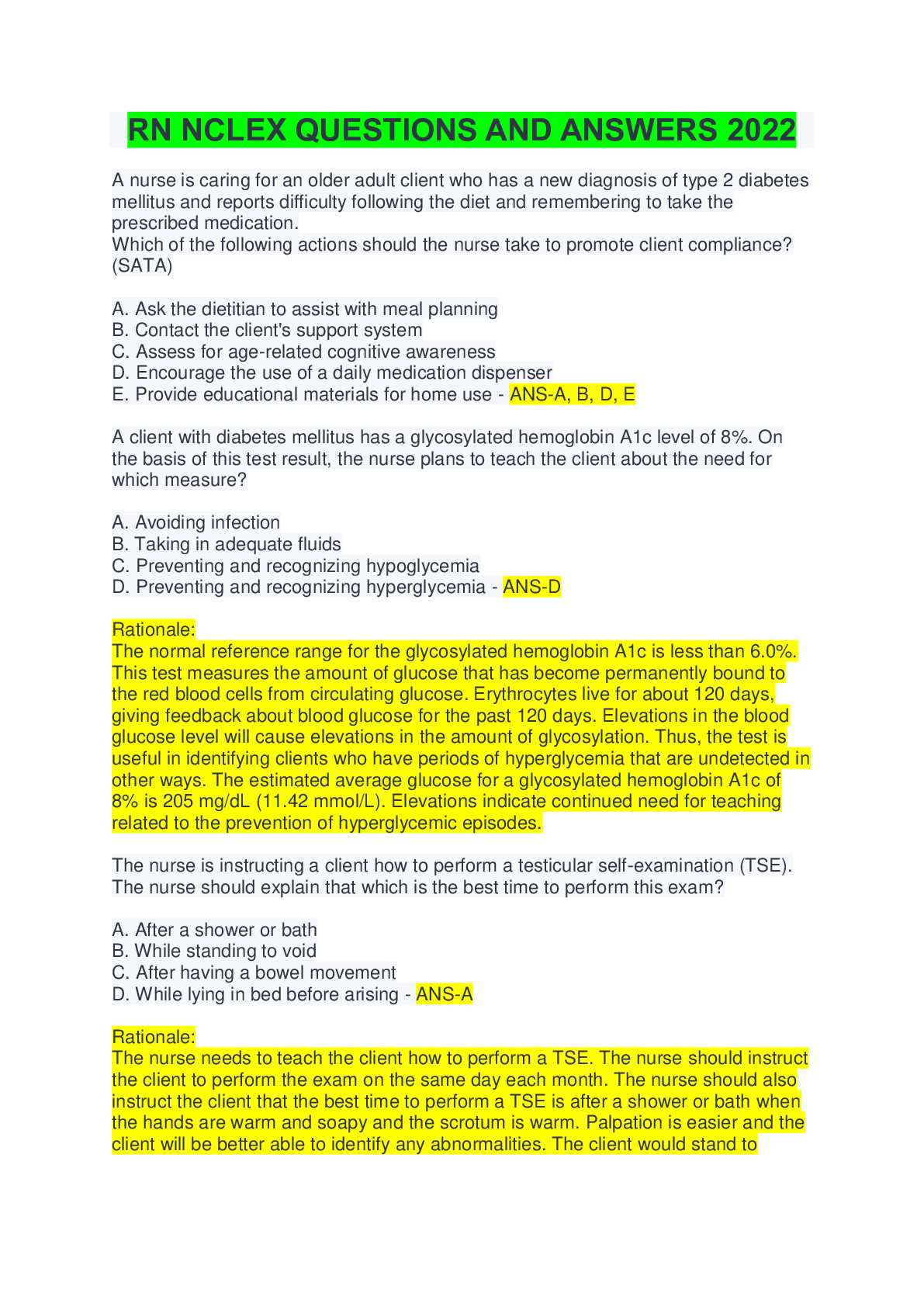
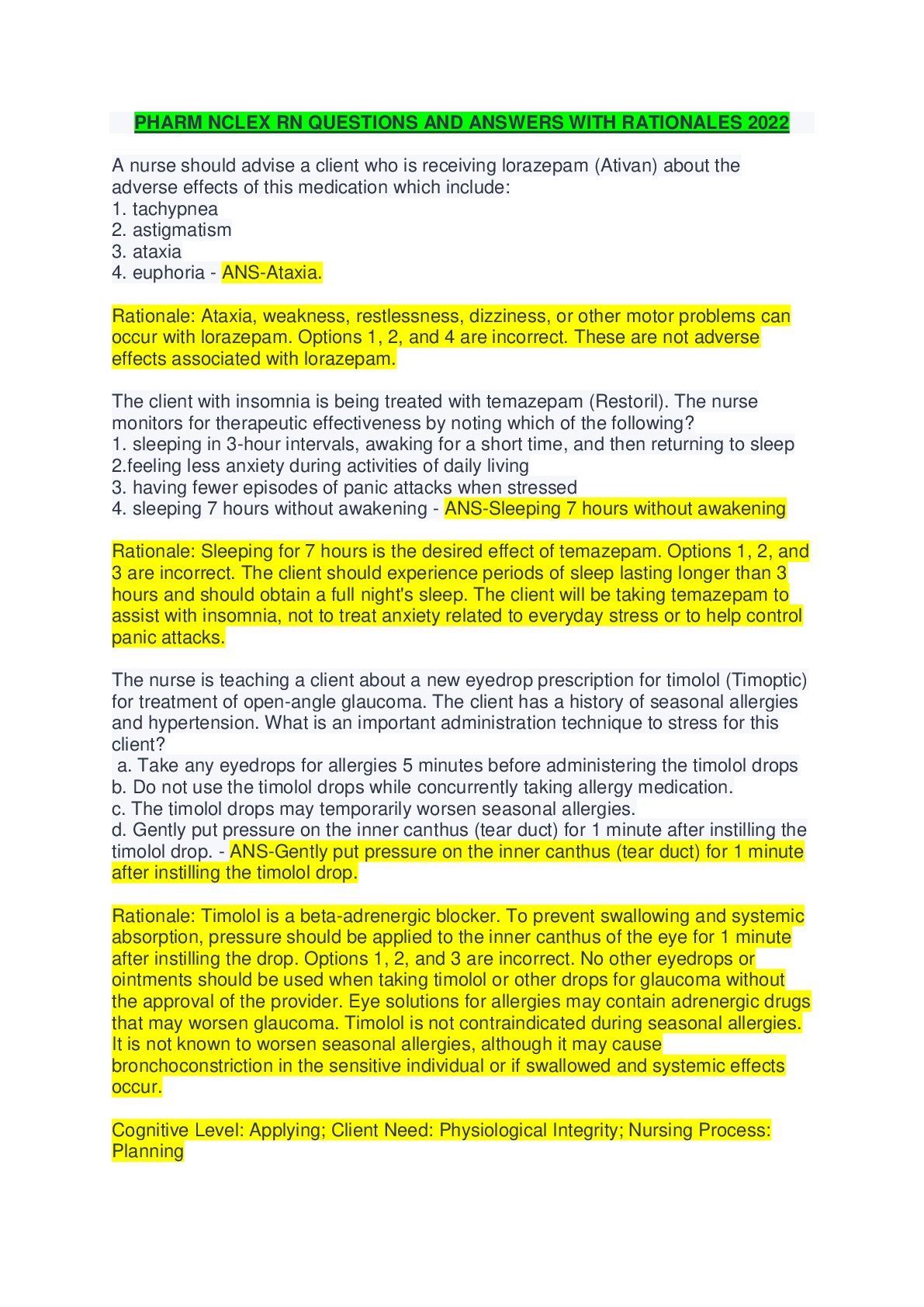

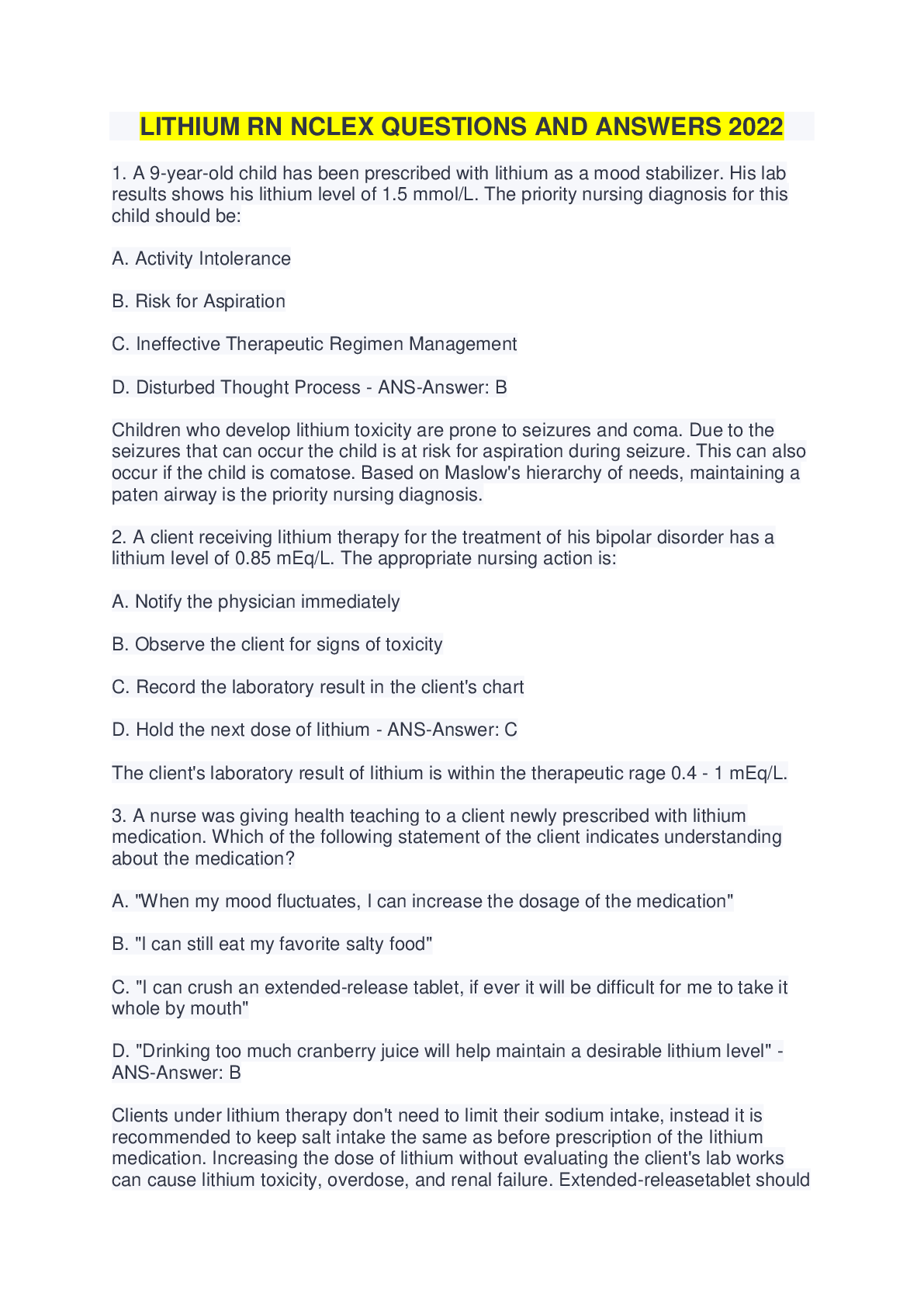

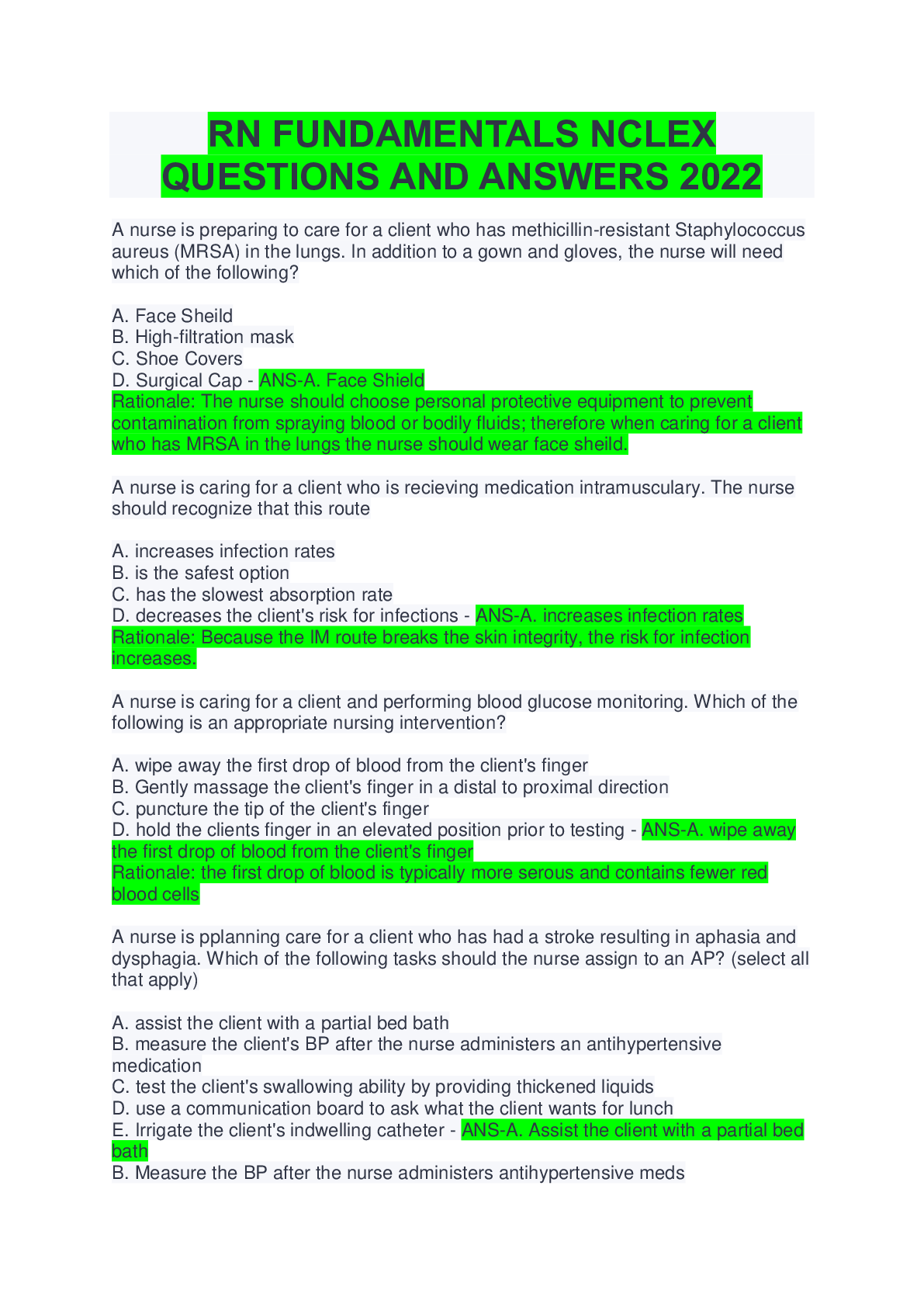
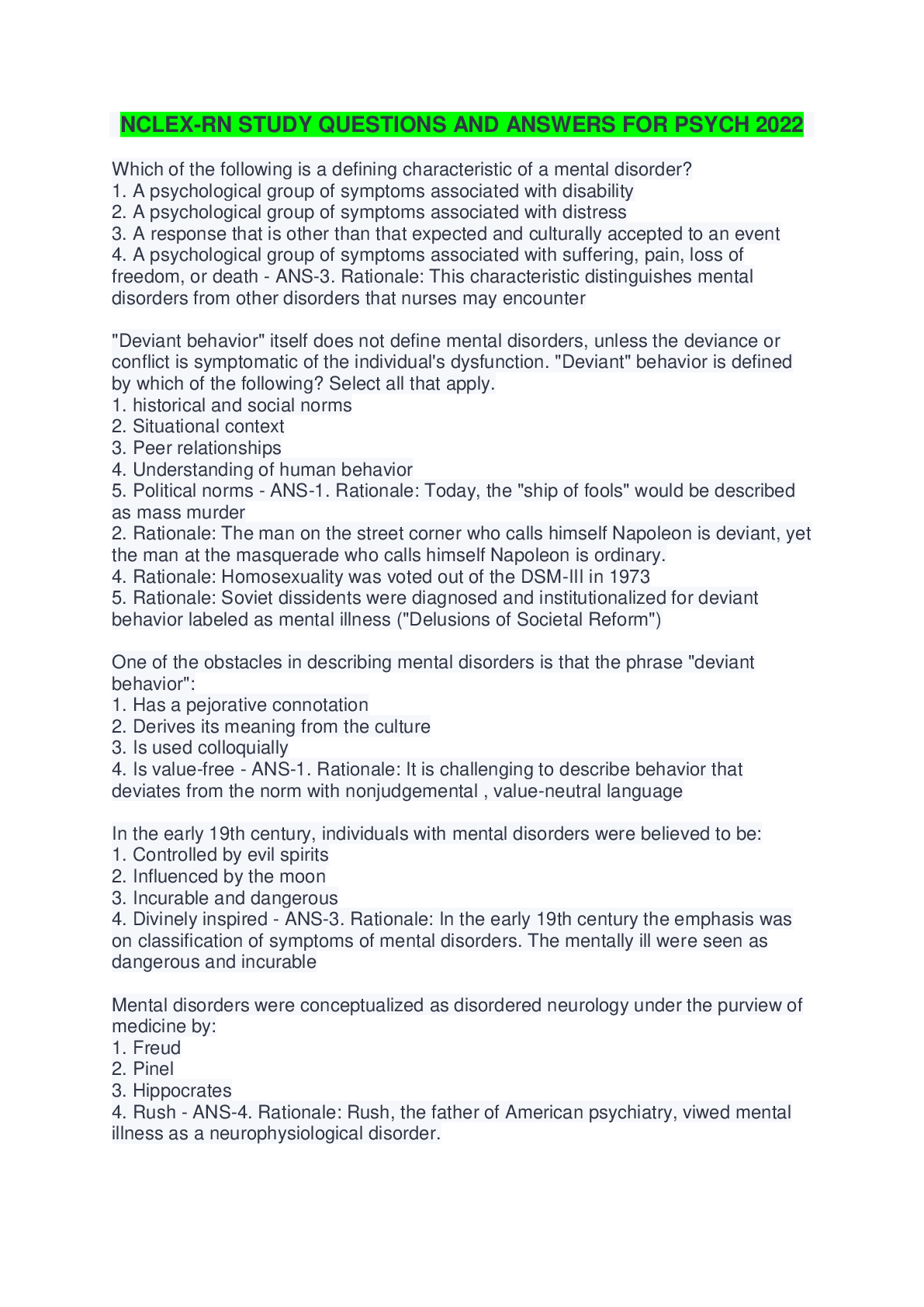
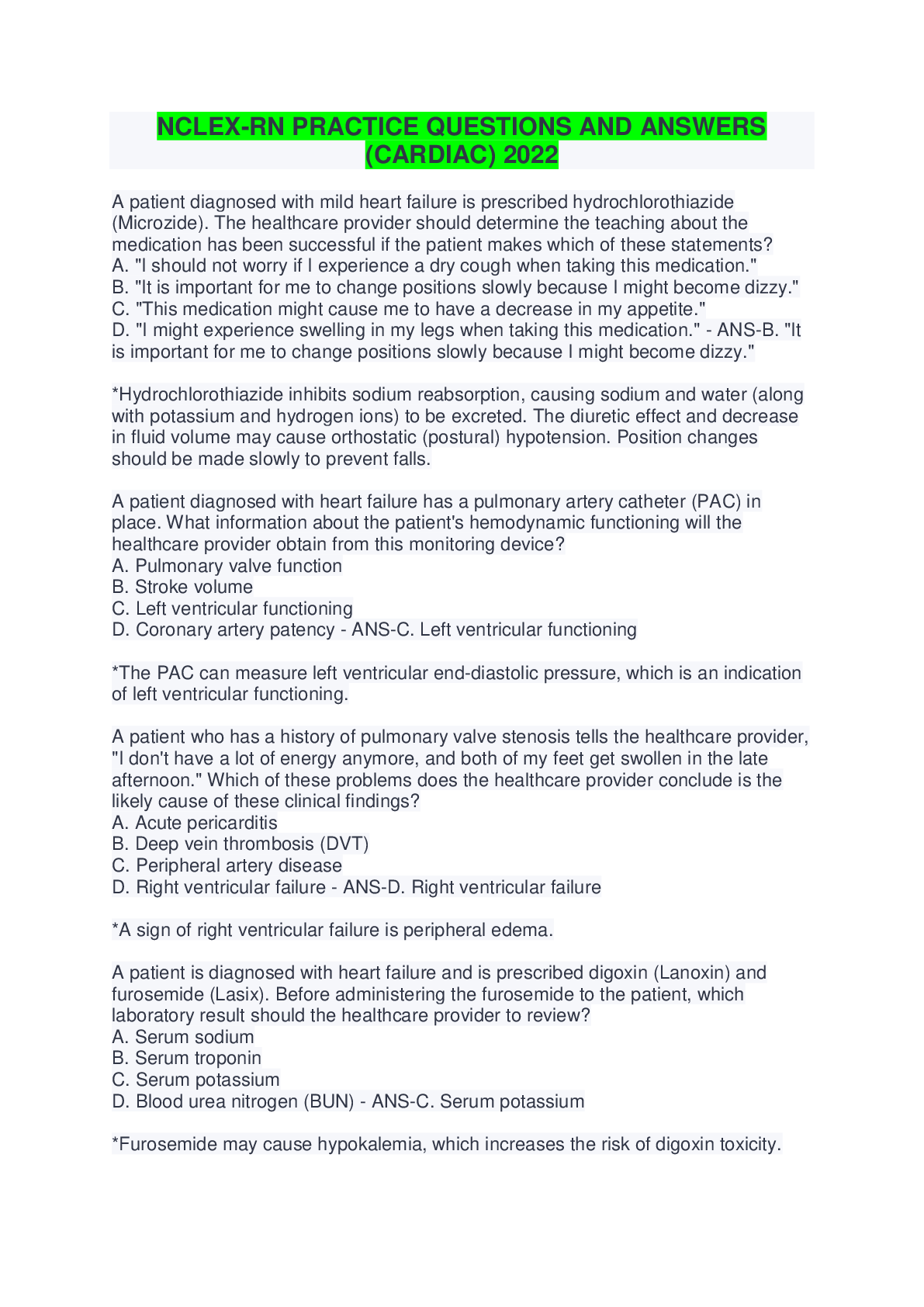
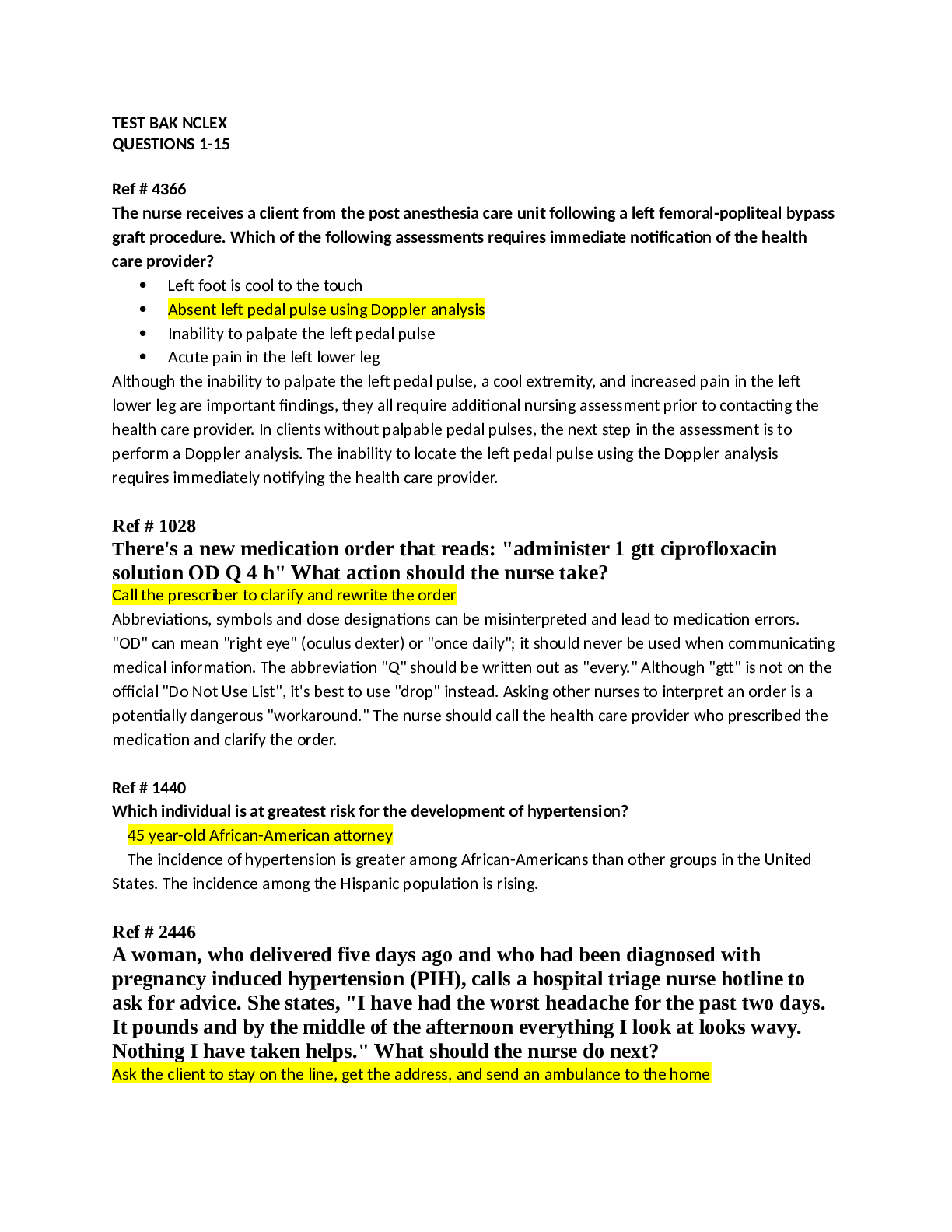
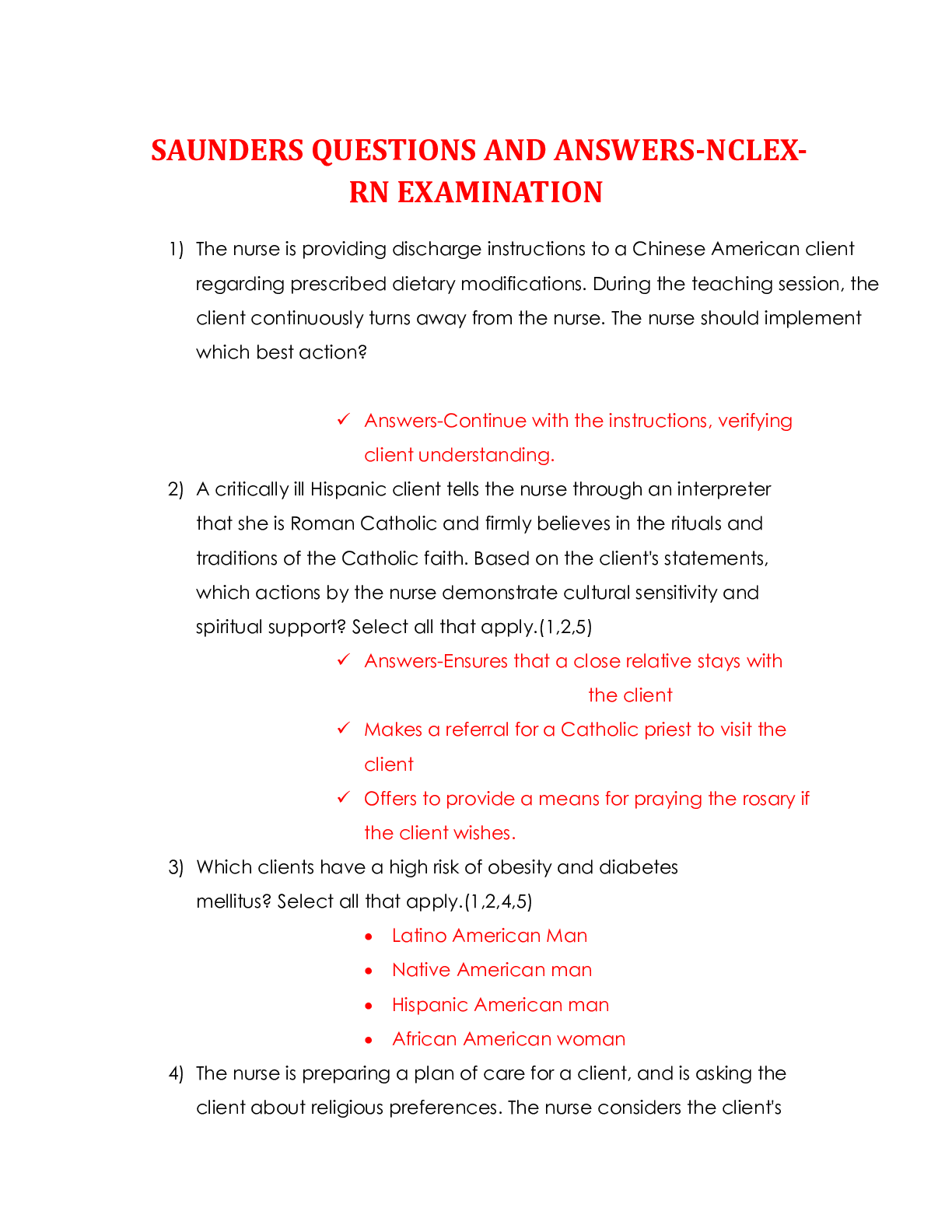
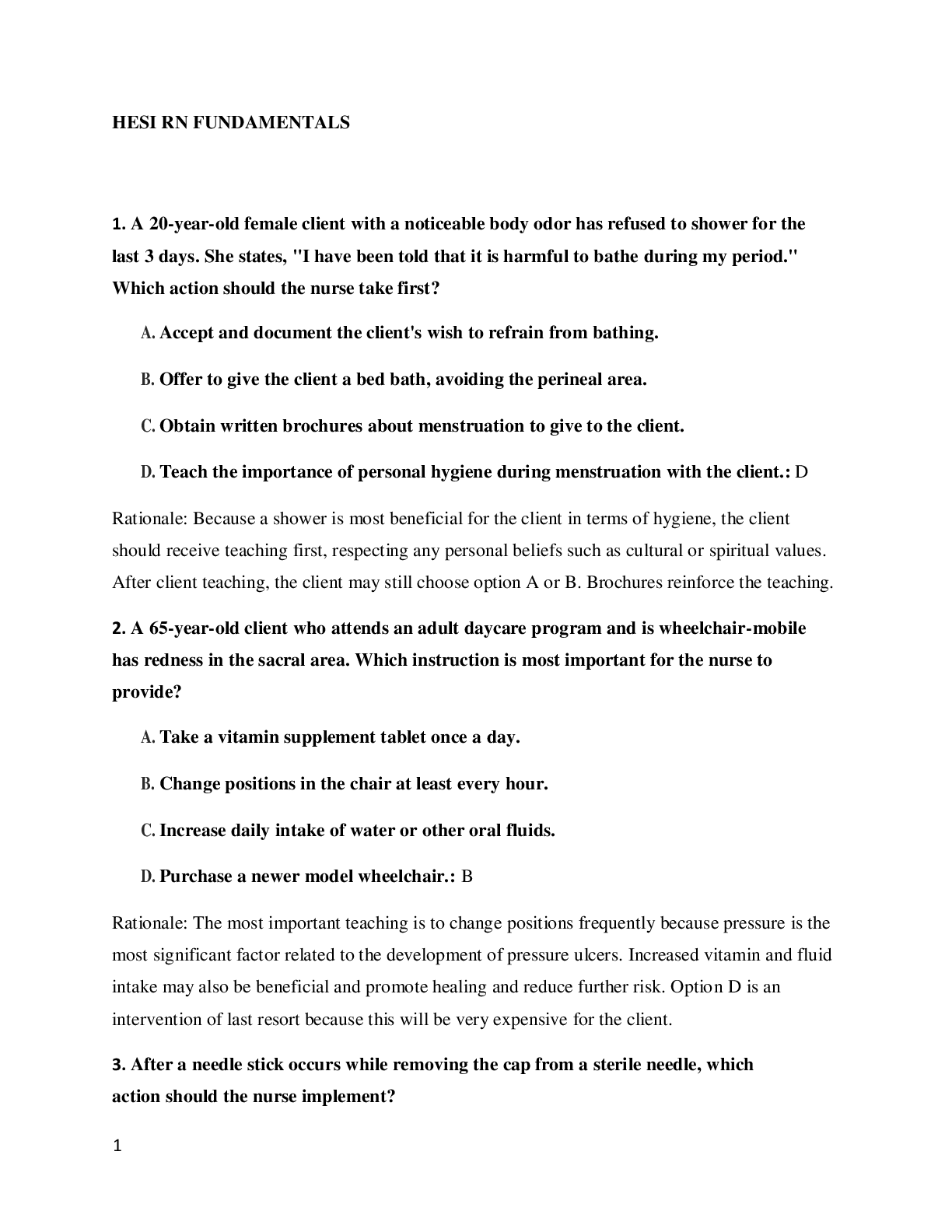
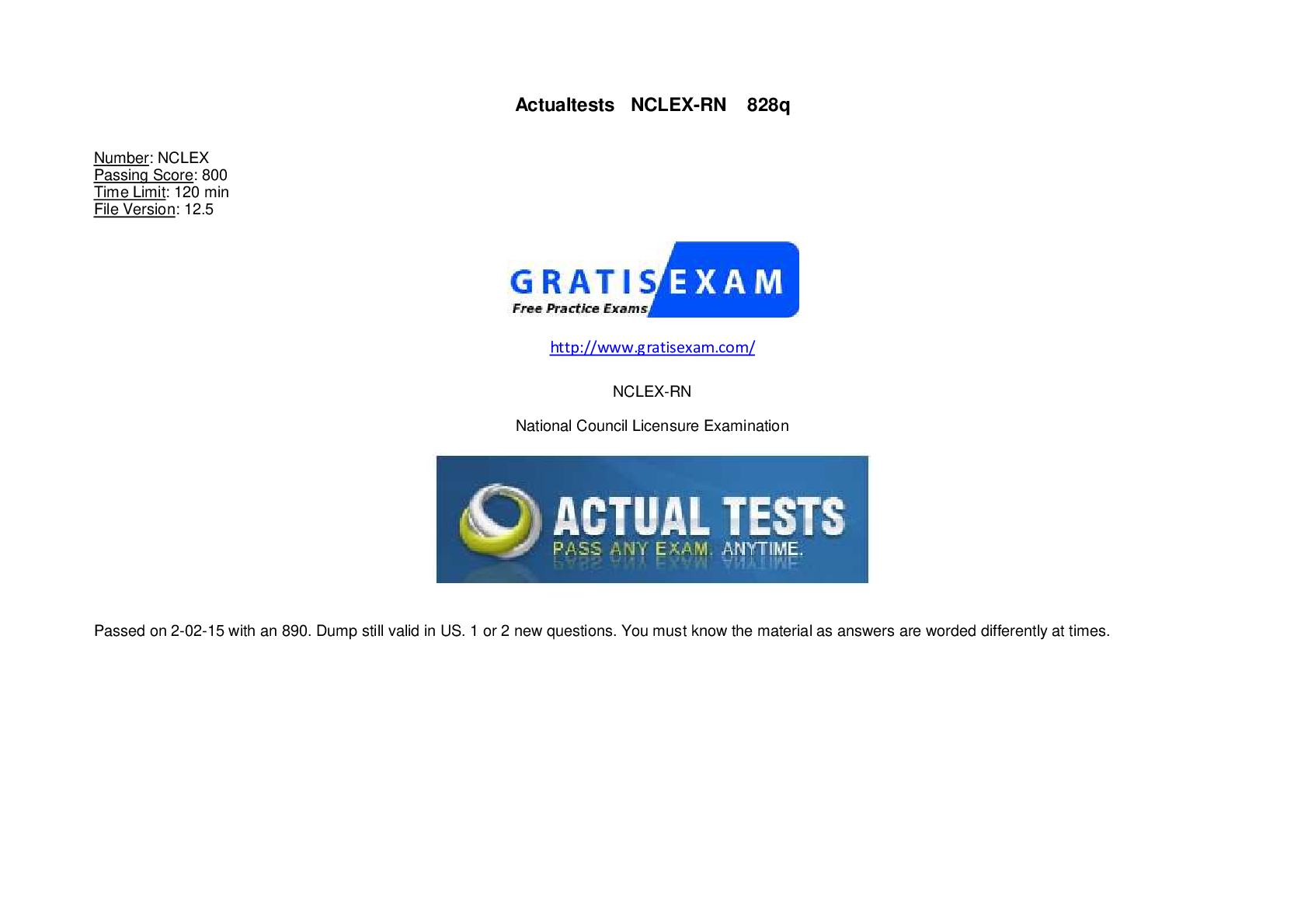

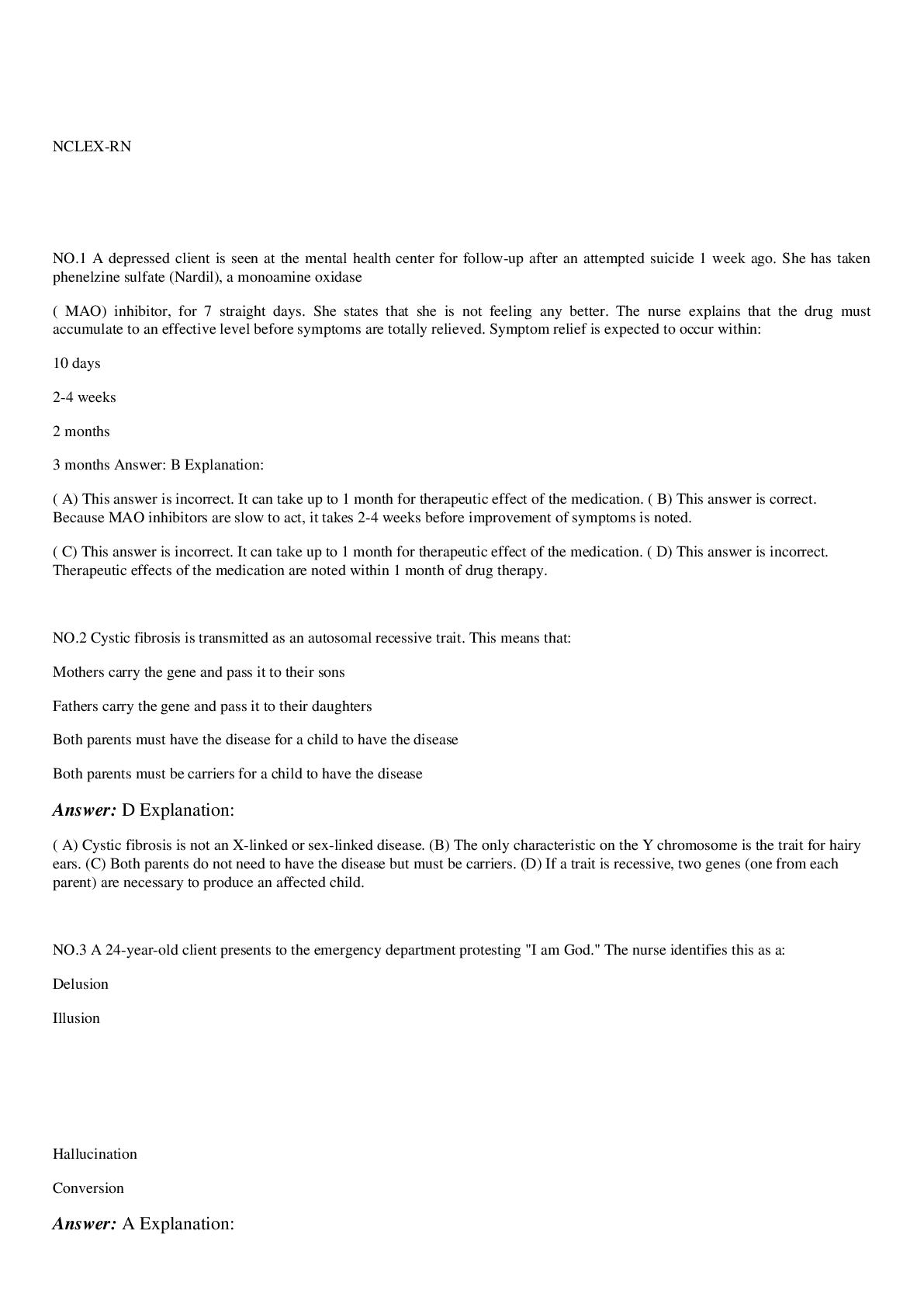

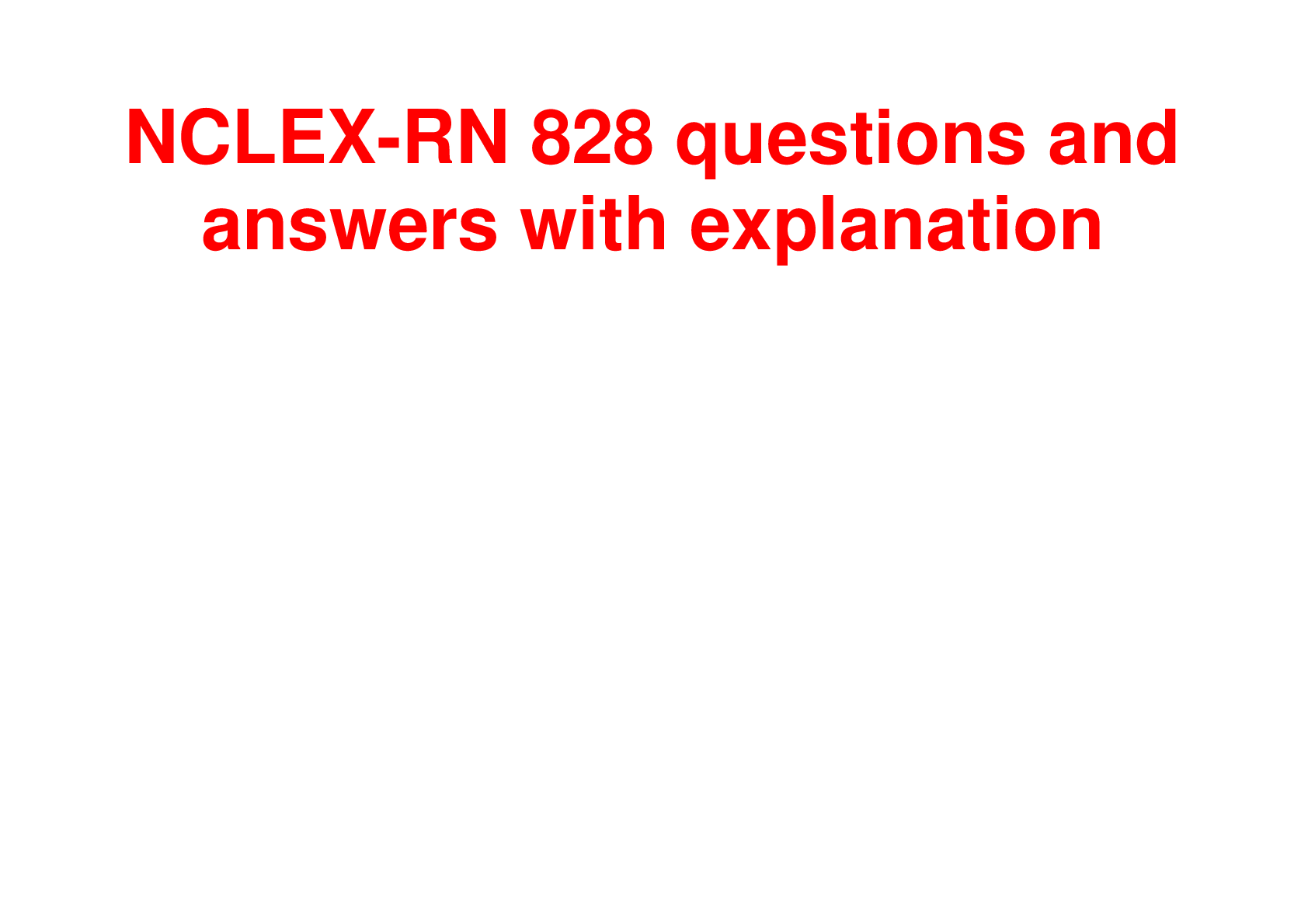
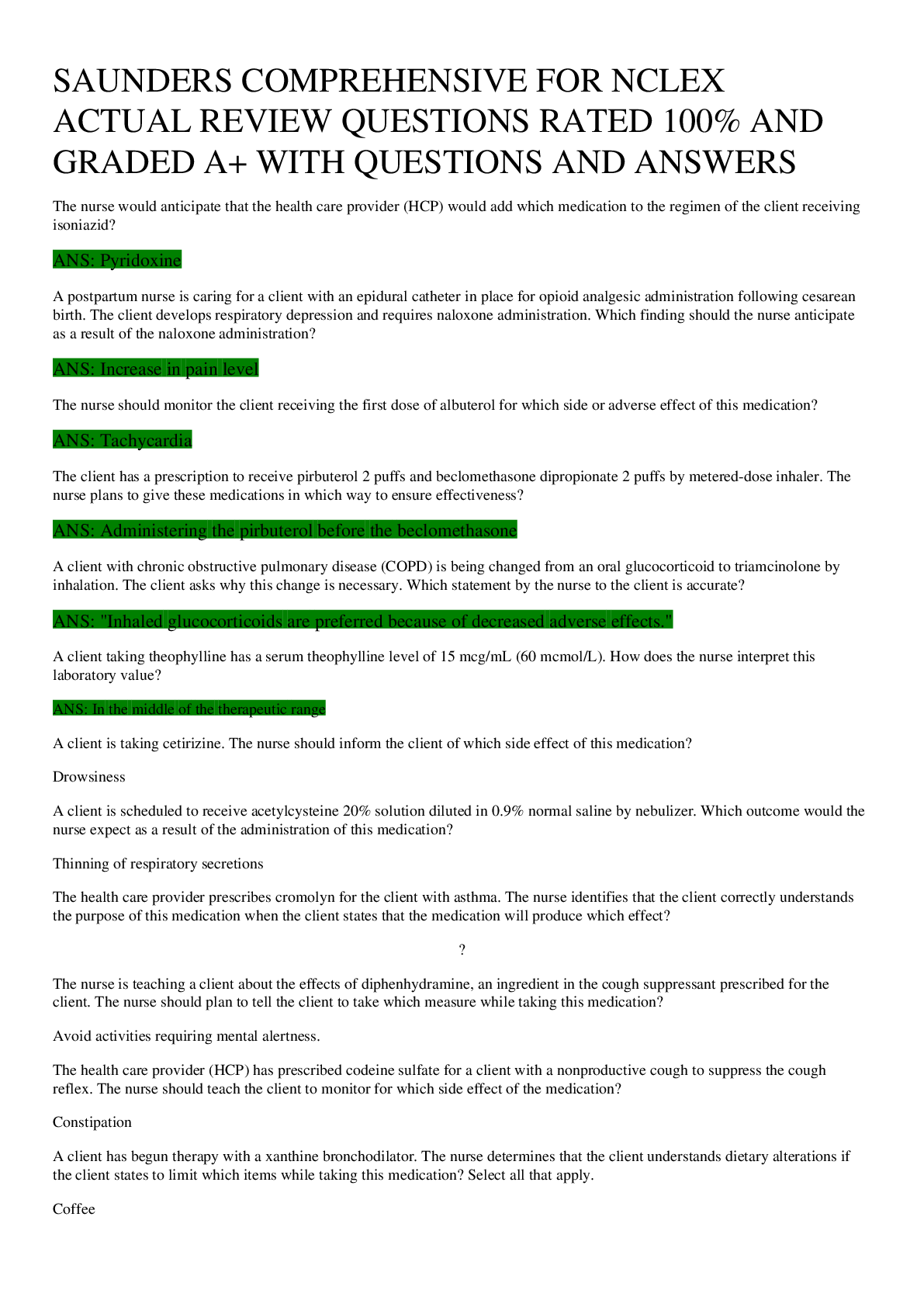
 With 850 Questions And Answers Guaranteed 100% Grade A.png)



